
The Best Genre-Bending Nonfiction of 2017
Innovative, genre-bending nonfiction is my favorite kind of book to read (so much so that I wrote a list of 100 must-read books that mess around with genre in fun ways). These books often have memoir or personal essay as a main element, but they don’t have to. They also cover history, current events, philosophy, sociology, poetry, biography, criticism, and more. 2017 had some excellent examples, and here are a few of them:
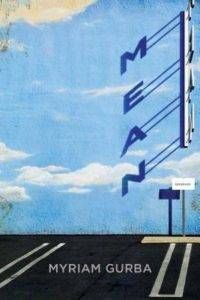 Mean by Myriam Gurba
Mean by Myriam Gurba
Mean is a memoir, but it’s a unique one: it’s poetic, forceful, angry, and, yes, a little bit mean, in the best way possible. Gurba writes about her experiences growing up in a California town as a mixed-race queer girl and young woman. She opens with an account of the sexual assault and murder of a girl from her town that haunts her and haunts the entire book. She takes us deep into her thoughts and experiences but also through what it is like to grow up vulnerable in a culture that doesn’t value your existence. It’s one of the most moving and inventive memoirs I’ve read in a long time.
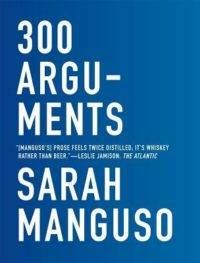 300 Arguments by Sarah Manguso
300 Arguments by Sarah Manguso
Manguso is a poet and has also made a name for herself as a nonfiction writer with books such as Two Kinds of Decay and Ongoingness: The End of a Diary. In 300 Arguments, she takes up the aphorism as her form: in her hands, these are loosely-related mini-essays that ask you to slow down and ponder. Manguso can pack so much meaning and wisdom into a very short form. The book is a mix of poetry, essay, and wisdom literature.
 Abandon Me: Memoirs by Melissa Febos
Abandon Me: Memoirs by Melissa Febos
Abandon Me is a mix of essay collection and memoir—call it linked essays on family, love, desire, addiction, and obsession. Febos writes about a complicated, troubled love affair that took her into some difficult places. She also writes about finding her birth father and learning about herself and her family history in the process. She grapples with her Native American heritage and the legacy of addiction she inherited from her family. Her writing is powerful—lyrical and moving.
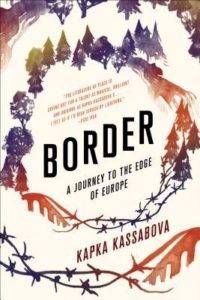 Border: A journey to the edge of Europe by Kapka Kassabova
Border: A journey to the edge of Europe by Kapka Kassabova
Border is part travel book, part memoir, part history, part philosophical meditation on the nature of borders. The “edge of Europe” of Kassabova’s title is the border connecting Bulgaria, Greece, and Turkey. Kassabova explores the history of the area and how the people living there have fared over the centuries. She describes her childhood in the region and her recent travels through it and tells stories of the people she meets and the marvelous and terrifying landscapes she travels through. Her book is a fascinating look into what borders are and how they have shaped individual lives and how people have understood themselves and others.
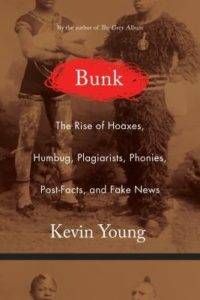 Bunk: The Rise of Hoaxes, Humbug, Plagiarists, Phonies, Post-Facts, and Fake news by Kevin Young
Bunk: The Rise of Hoaxes, Humbug, Plagiarists, Phonies, Post-Facts, and Fake news by Kevin Young
Poet and nonfiction writer Kevin Young takes a look at hoaxes and fakery from the past up to the present—from P.T. Barnum to Donald Trump. In particular, he looks at the racial roots of “bunkum” and how American stories of race so often involve fakery: think Rachel Dolezal and how Barnum became famous by exploiting a black woman he pretended was a nursemaid to George Washington. This is the kind of brilliant nonfiction that can explain our history and help us understand how we got to the place we are in.
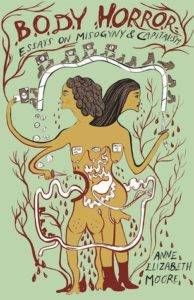 Body Horror: Capitalism, Fear, Misogyny, Jokes by Anne Elizabeth Moore
Body Horror: Capitalism, Fear, Misogyny, Jokes by Anne Elizabeth Moore
This book’s subtitle should draw you into this collection of essays on women’s bodies in our misogynistic, capitalistic world. These essays contain personal and journalistic writing and a healthy dose of humor. Topics include health and disease, farming, garment workers in Cambodia, clothing sizing systems, fashion models, and more. It’s a bracing, fresh look at the relationships of global economic systems and the fates of individual people.
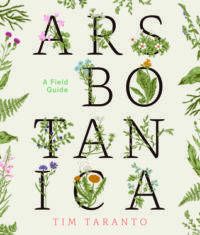 Ars Botanica by Tim Taranto
Ars Botanica by Tim Taranto
This is mixed-genre writing as its best: it’s made up of letters written to, as Karen Russell puts it in her blurb for the book, “a phantom addressee” and contains illustrations created by the author. It’s nature writing, memoir, poetry, and art. It’s a book about grief and endings and also about the Iowa landscape where Taranto lives. The book is beautiful and innovative and moving.
 Heating & Cooling: 52 Micro-Memoirs by Beth Ann Fennelly
Heating & Cooling: 52 Micro-Memoirs by Beth Ann Fennelly
Here you will find very short essay/memoirs on writing, parenting, relationships, and more. At just over 100 pages, it’s the perfect book for when you need something rich and thoughtful but also something that won’t bog you down. You can read it in short chunks, but you also might also find it difficult to put down. Fennelly is sharp, thoughtful, entertaining, and a great writer to spend some time with.













